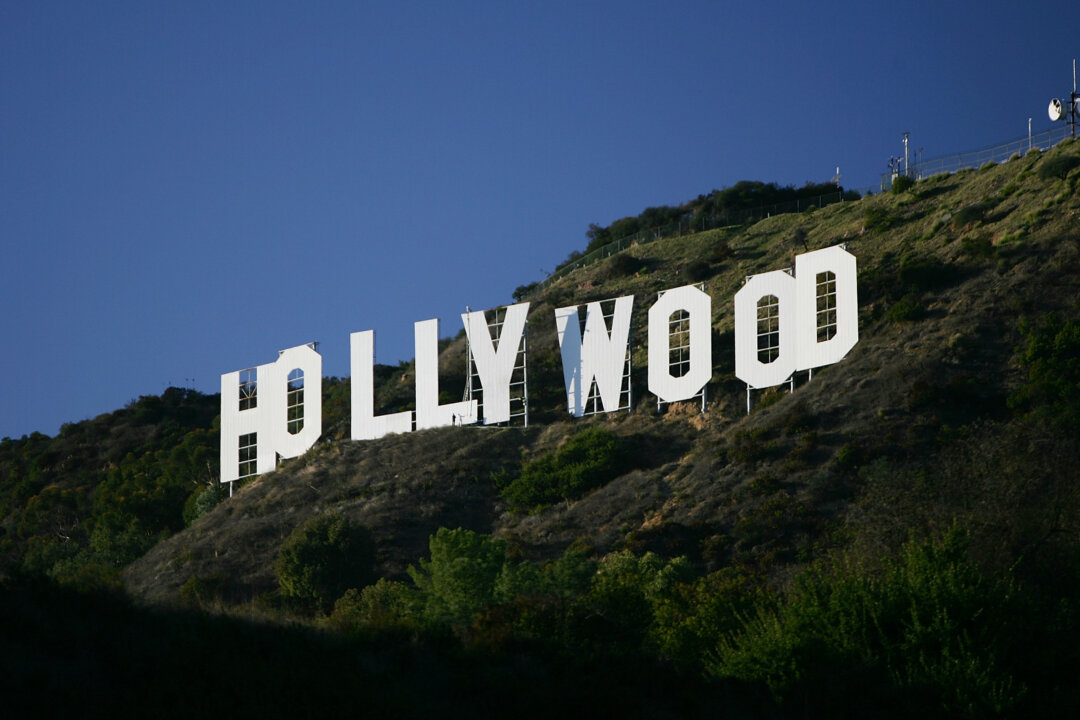The White House said ‘all options’ are being explored after Trump authorized a 100 percent tariff on movies made outside the United States.
The White House clarified on May 5 that no final decisions have been made on imposing tariffs on foreign-made films, while “all options” remain under consideration following President Donald Trump’s directive to explore trade measures aimed at revitalizing the U.S. movie industry.
“Although no final decisions on foreign film tariffs have been made, the Administration is exploring all options to deliver on President Trump’s directive to safeguard our country’s national and economic security while Making Hollywood Great Again,” White House spokesman Kush Desai told The Epoch Times in an emailed statement.
Desai’s comment followed Trump’s May 4 Truth Social post in which he accused foreign governments of luring U.S. film production overseas through generous incentives and described the trend as a coordinated threat to U.S. culture and national security.
“The Movie Industry in America is DYING a very fast death,” Trump wrote in the post. “Other Countries are offering all sorts of incentives to draw our filmmakers and studios away from the United States. Hollywood and many other areas within the U.S.A. are being devastated. This is a concerted effort by other Nations and, therefore, a National Security threat. It is, in addition to everything else, messaging and propaganda.”
Trump said he authorized the Department of Commerce and the Office of the U.S. Trade Representative “to immediately begin the process of instituting a 100 percent Tariff on any and all Movies coming into [the United States] that are produced in Foreign Lands.”
“We want movies made in America, again!” he wrote in all capital letters.
The president’s comments on using tariffs to protect the U.S. film industry—and subsequent White House clarification that all options are being explored—come amid a sharp decline in U.S.-based film production. Hollywood recorded just 451 shoot days for feature films in the first quarter of 2025—a nearly 29 percent drop from the same period last year, according to recent data from FilmLA. Industry observers and recent reports point to the growing appeal of foreign locations, where looser tax rules, cheaper labor, and generous subsidies have lured productions overseas.
Hollywood’s wane has drawn increasing concern from the Trump administration, which has cast the issue as not just an economic risk but also a cultural risk. Earlier this year, Trump appointed actors Jon Voight, Mel Gibson, and Sylvester Stallone as special envoys to Hollywood, tasked with advising him on ways to revitalize the U.S. entertainment industry and restore its former glory.
Trump’s efforts to counteract Hollywood’s decline come amid escalating trade tensions with China, which retaliated against the president’s sweeping import tariffs by further restricting U.S. access to its lucrative entertainment market. On April 10, Beijing’s National Film Administration announced that it would “moderately reduce” the number of U.S. films allowed into Chinese cinemas, citing a decline in local audience interest following the U.S. tariff hikes.
When asked about the Chinese regime’s move, Trump said, “I think I’ve heard of worse things.”
U.S. officials have accused China of using film import quotas and restrictive revenue-sharing models to control cultural influence. The Chinese Communist Party (CCP) currently caps foreign film imports at 34 per year, and U.S. studios typically receive only 25 percent of Chinese box office receipts, roughly half of what they earn in most other international markets.
As of mid-April, the Trump administration had imposed 145 percent tariffs on all goods originating from China. In response, Beijing levied 125 percent tariffs on U.S. imports. The White House later warned that further escalation could trigger reciprocal duties of up to 245 percent.
Trump, speaking in a May 4 NBC interview, said he had “no intention” of rolling back tariffs just to get Chinese officials to the negotiating table.
“At some point, I’m going to lower them because otherwise, you could never do business with them, and they want to do business very much,” he said. “Look, their economy is really doing badly. Their economy is collapsing.”
A number of experts have told The Epoch Times that U.S. tariffs are hurting China’s highly export-dependent economy. Some have predicted that unless Chinese officials make a deal with Trump, China could experience an economic depression.










Leave feedback about this